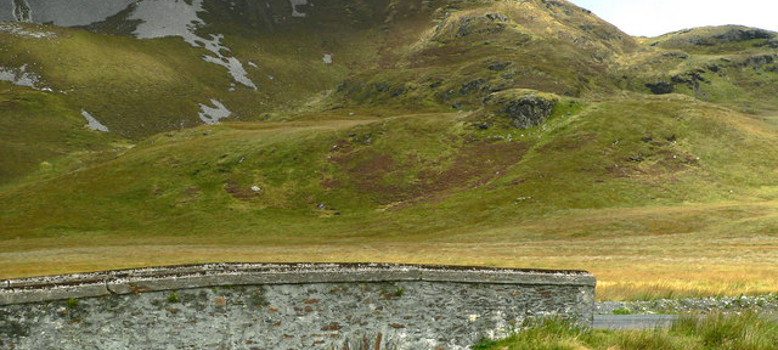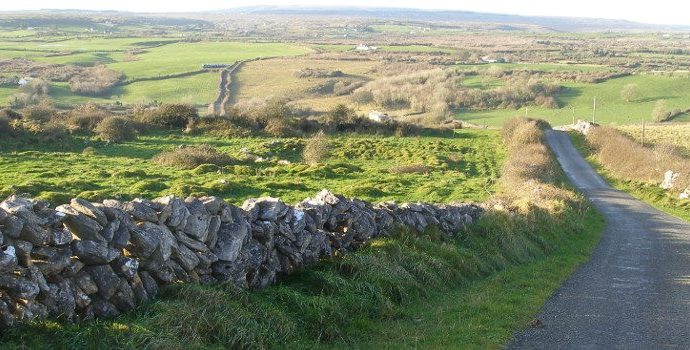Rural Development Reports
Rural Development Council Report June 2021

TAMS
- Due to delays caused by COVID19 flexibility on TAMS completion deadlines have been secured – all participants with TAMS II approvals or COVID-19 extensions expiring between 1 April and 30 June 2021 can apply to the local DAFM office for an additional three-month extension.
- TAMS costings are currently being reviewed to reflect the rise in the costs of materials.
- Approximately 3,000 farmers applied for TAMS in Tranche 21, which closed on April 16th. In addition, approximately 1,400 applicants were carried forward from the previous tranche.
- At the time of writing approvals for tranche 21 have not commenced.
- IFA is insisting that there must be no further delay in approvals for tranche 21 as to date the process is too slow.
- Tranche 22 is open for applications, and is due to close July 23rd 2021, with the next tranche opening on July 24th 2021. Further tranche in 2021 will open on 5 November 2021.
- So far in TAMS 38,240 approvals for TAMS have been issued.
- Payments of €275m have been paid out to 20,507 farmers to date. A further 1,100 farmers have lodged payment claims.
- The revised TAMS Budget, to include the CAP Transitional period of 2021 and 2022, is €523.81m.
- When the carryover allocation from TAMS 1 is taken into account, €286m has been spent out of the RDP allocation of €523.8m.
- For farmers farming over 170KgsN/ha and exporting slurry to remain nitrates compliant, spreading slurry using LESS equipment is mandatory from April 15th 2021. Under CAP rules mandatory measures cannot be funded, a one-year grace period has been secured, therefore these farmers will be eligible to receive TAMS equipment until April 2022.
- The addition of investments for calf welfare. This means that the investments previously available under the Calf Investment Scheme will now be included under TAMS.
- GPS spreaders to be now available for all categories of applicants. Previously these were only available to tillage applicants under the scheme;
2021 BPS/ANC Schemes
- 129,018 farmers have made BPS application.
- IFA dealt with a number of queries from farmers who had issues with making application with the Dept. These were all resolved with the Dept.
- IFA will be insisting that maximum flexibility will be sought in the current circumstances to ensure all payments are made.
- There are no changes to the ANC Scheme for 2020. There have been some concerns raised with regard to the stocking rate criteria but there are no changes at this stage. An overall stocking limit of 0.15LU/Ha for a 7- month period and the average of 0.15LU/HA over the 12-month period.
- The ANC 2021 rates of payment do not change and the allocation is of the order of €250m.
GLAS
- At this stage, 46,272 farmers have got their full 2020 payment. There are still about 2,000 due their balancing 15% payments. The total amount paid out under GLAS for 2020 is €199.3m.
- The remaining farmers are being paid as problems are being resolved.
CAP Transition
The 10th Amendment to the RDP for the years 2021 and 2022 is to take account of the transitional arrangements for the RDP for 2021 and 2022 and incorporate the EU Recovery Instrument (EURI) funding allocation for Ireland of almost €190m.
The amendment will:
- programme the measures for the transitional funding and the European Recovery Instrument Funding for 2021 and 2022
- introduce changes to the existing measures to take account of the 2-year transition period
- add in new sub-measures support to trial and pilot possible measures for the CAP Strategic Plan
- support the development of new baseline data for soils and habitat, and test the scalability of results based Agri-environment actions
- other minor updates necessary due to the extended period of the programme
- adjust the financial and indicator plans
REAP
- Nearly 11,000 farmers applied for REAP.
- The high level of application from farmers is no surprise to IFA given the number who exited AEOS, and new entrants who had no environment scheme open to them. This shows that there is demand for environmental schemes among farmers.
- The REAP budget of €10m per annum is totally inadequate to cater for the demand.
- IFA called on the Minister of Agriculture Charlie Monologue to increase the budget to meet the demand, ensuring all farmers who wish to participate in REAP are given the opportunity to do so.
- The 2020 Programme for Government (PFG) gave a commitment to provide €1.5bn in funding to a “REPS-2” agri environmental scheme over the 2021-2030 period. The PFG also outlined that funding for this would be from Carbon Tax receipts and that it would be additional to CAP funding. This is essential in order to compensate farmers for the ever-increasing cost of compliance being imposed on them. It is also imperative that none of this funding is diverted to meet the Irish Government’s co-financing requirements under the next CAP programme.
- Despite the 2020 PFG promise, the Irish Government is already falling behind on its “Carbon Tax/REPS-2” commitment. IFA estimated carbon tax yield for the 2021-2030 period along with the required funding to be set aside to achieve the €1.5bn PFG commitment that 11.7% of the Carbon Tax Yield must be allocated annually to the new agri-environmental scheme to achieve the €1.5bn commitment by 2030. €23m was allocated this year which is only 3.4% of the likely 2021 Carbon Tax yield estimated at €571m.
If the Government wants to live up to their promises, they must deliver this.
Farm Environment Survey pilot
- The DAFM recently launched a Farm Environment Survey pilot.
- Total budget of €5m.
- It is anticipated that the Farm Environmental Study (FES) will generate a database of baseline habitat and biodiversity data at the farm level and will provide the scope for an analysis of farm habitats and biodiversity and a baseline for future targeting of agri-environmental schemes and measures.
- The Pilot Stage of FES will be carried out on approximately 8000 farms.
- The Pilot FES will provide the farmer with an inventory of habitats, biodiversity and environmental information about his/her own farm.
- Farmers will receive €200 for participation.
- The Pilot Programme is proposed to be tendered externally for delivery by an external company. The Dept of Ag will administer the farmer application process and Rank and Selection requirements for the programme through the online AgFood.ie.
- It is planned a successful tenderer will be in place by Quarter 3 2021.
- Farm surveys will likely begin Quarter 2 in 2022.
Soil Sampling Programme
- A soil sampling and analysis programme to develop a national baseline of soil parameters and soil health indicators is to be launched by the DAFM in the next few weeks.
- Total budget of €10m
- To be open to all farmers for soil sample testing which will be taken by an advisor and tested in a lab at no cost to the farmer
CAP
- At a recent rural development committee meeting members agreed that convergence coupled with eco schemes will have detrimental impact on productive farmers particularly in the vulnerable sectors. There was some support for a pillar 1 coupled payment for suckler cows and ewes to reduce the impact.
- IFA rural development committee is engaging with COPA and the EU commission on various aspects of CAP.
- Ongoing dialogue with the Department of Agriculture




